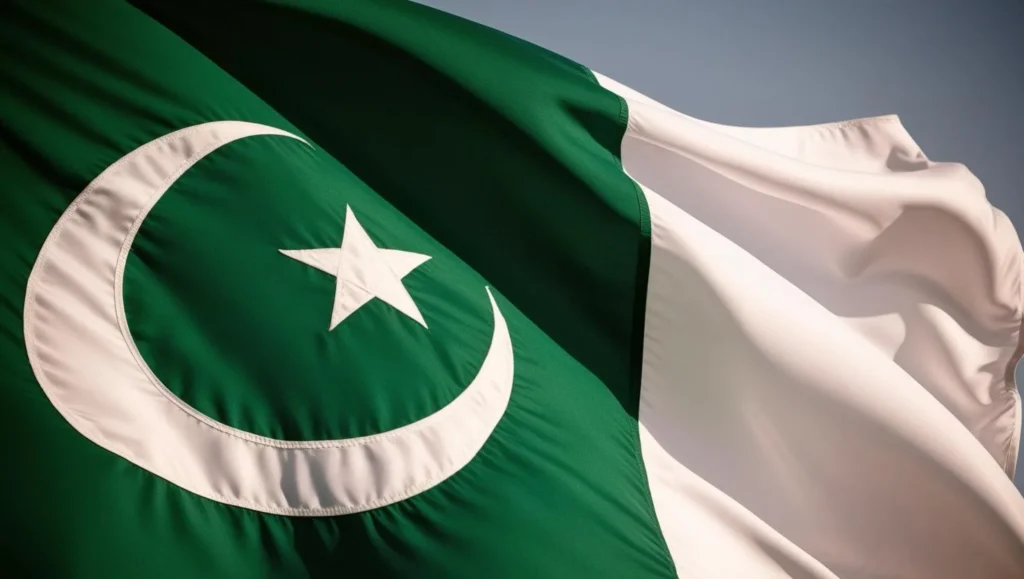Pakistani names hold a unique charm, rooted in the country’s rich cultural and linguistic diversity. They reflect the heritage, religion, and values of the region, making them more than just identifiers. This article delves into the world of Pakistani names, exploring their origins, meanings, and significance while also highlighting some popular choices for both boys and girls.


Read: 36 Top Pakistani Islamic Names: A Blend of Tradition and Meaning
20 Sophisticated and Elegant Pakistani Muslim Names for Newborns
Top 50 Pakistani Muslim Baby Names for Boys and Girls in 2025
20 Balochi Muslim Names with Cultural Meanings
20 Delicate & Feminine Pakistani Girl Names
Pakistani Names: A Blend of Traditiod and Diversity
Pakistan is a melting pot of cultures, and its names are no exception. The country’s names are influenced by a variety of languages and traditions, including:
- Islamic Influence: Since the majority of Pakistan’s population is Muslim, a significant number of names have Arabic origins, drawn from the Quran and Islamic history. Names like Muhammad, Fatima, Ali, and Aisha are perennial favorites.
- Persian Influence: Persian culture has deeply influenced the region, and many Pakistani names have Persian roots. Examples include names like Arman (hope) and Shehzadi (princess).
- Regional Languages: Names in Pakistan also stem from the country’s many languages, such as Punjabi, Sindhi, Pashto, Balochi, and Urdu. For instance, Gul (flower) is a popular Pashto name, while Chand (moon) is common in Sindhi.
- Modern Trends: In recent years, globalization and media have introduced a wave of modern and unique names, blending traditional and contemporary styles.
Characteristics of Pakistani Names
Pakistani names are typically chosen with care, as they are believed to influence a person’s life and personality. Here are some key features:
- Meaningful Names: A name’s meaning is paramount. Parents often choose names with positive connotations, such as “strength,” “happiness,” or “light.”
- Religious Significance: Many families prefer names associated with prophets, saints, or Islamic virtues.
- Gender-Specific Names: While some names are unisex, most are distinctly male or female, reflecting traditional gender roles.
- Euphony: Names are often selected for their melodious sound, making them pleasing to hear and pronounce.
Popular Pakistani Names for Boys
Here is a list of some popular and meaningful names for boys:
- Muhammad: A timeless and revered name, meaning “praiseworthy.”
- Ahmed: Another popular name, meaning “one who thanks God.”
- Hamza: Meaning “lion,” symbolizing bravery and strength.
- Bilal: The name of the first muezzin in Islam, symbolizing devotion.
- Zayan: A modern name meaning “adornment” or “graceful.”
- Omar: A name with historical significance, meaning “flourishing.”
- Shayan: Meaning “worthy” or “deserving.”
- Tariq: Referring to “morning star” or “pathfinder.”
Popular Pakistani Names for Girls
Below are some cherished names for girls:
- Aisha: Meaning “alive” or “living,” and associated with the Prophet’s wife.
- Fatima: A revered name meaning “captivating.”
- Zara: A modern favorite, meaning “princess” or “flower.”
- Hina: Meaning “fragrance” or “mehndi (henna).”
- Noor: Meaning “light,” symbolizing brightness and purity.
- Sana: Meaning “praise” or “brilliance.”
- Iqra: Derived from the Quranic command, meaning “read.”
- Maha: Meaning “wild cow,” symbolizing beauty and grace.
Choosing the Perfect Name
Selecting a name is an important milestone for Pakistani parents. Here are some tips to guide the process:
- Research the Meaning: Ensure the name’s meaning aligns with your values and aspirations for the child.
- Consider Pronunciation: Choose a name that is easy to pronounce and spell, especially in multicultural settings.
- Family Traditions: Many families follow naming conventions, such as using names from ancestors or Islamic history.
- Consult Religious Texts: Names from the Quran or Islamic heritage are often considered auspicious.
- Modern vs. Traditional: Strike a balance between honoring tradition and embracing modern trends.
The Significance of Names in Pakistani Culture
In Pakistani culture, names are more than mere labels; they carry a deep sense of identity and belonging. A name connects an individual to their family, community, and heritage. For instance, it is common to have compound names like Muhammad Ali or Fatima Zahra, blending first names with additional meanings or honoring significant figures.
Conclusion
Pakistani names are a fascinating blend of tradition, culture, and meaning. They serve as a reflection of the country’s rich heritage and the aspirations of its people. Whether rooted in Islamic history, Persian poetry, or regional languages, these names carry timeless significance. For parents, choosing a name is a heartfelt process, one that celebrates the beauty and diversity of Pakistan’s cultural tapestry.
Whether you are looking for inspiration for your baby’s name or simply curious about the naming traditions of Pakistan, this guide offers a glimpse into the thoughtfulness and care that goes into naming a child in this vibrant and diverse nation.

